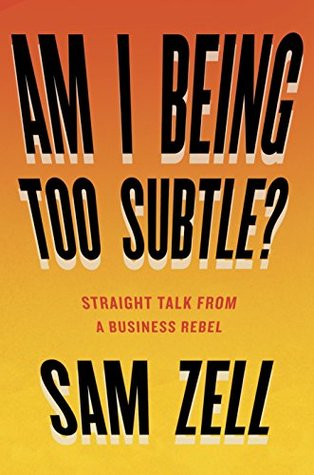More on this book
Community
Kindle Notes & Highlights
by
Sam Zell
Read between
March 24 - June 14, 2024
Everything you do, everything you say, is part of the permanent record. Your name reflects your character.
There’s a healthy amount of irreverence at my core, and I apply it in an equal-opportunity way—externally and internally. Early on I adopted a philosophy I call the Eleventh Commandment, “Thou shalt not take thyself too seriously,”
The bottom line is if you’re really good at what you do, you have the freedom to be who you really are.
It was a lesson in the value of how much you learn by seeing people in their own environments. Today I could probably get just about anybody to come to my office for a meeting, but that wouldn’t tell me much. Instead, I spend over a thousand hours a year on my plane traveling around the world to meet with people. I want to see what they are like on their home court, how they treat their people and the examples they set.
While I was unaware of it at the time, my real compensation for that job wasn’t monetary. It was learning about and getting comfortable with rejection. And as I would later realize, indifference to rejection is a fundamental part of being an entrepreneur.
This has always been a fatal flaw in U.S. real estate: the volume of development has been related to the availability of funds, not to demand. The industry has a long history of overbuilding when there’s easy money, without regard for who will occupy those spaces once they’re built.
To me, risk-taking rests on the ability to see all the variables and then identify the ones that will make or break you.
Critical thinking is the hallmark of an entrepreneur. That open-minded ability to independently assess is in direct contrast to a formulaic approach. Instead of fostering critical thinking, business schools were creating automatons.
At every one of those events, some kid will inevitably get up and ask the question: “You’ve done so much, but there is obviously less opportunity today. What are my options?” My answer is that there is always opportunity. It may not be broadcasting itself in the form of a sector-wide trend or a blatant disruption, but it’s always there. You have to be actively looking for it, and when you find it you have to do the homework, assessing the risk versus reward. It takes guts, and it’s not easy. But if you’ve got the stomach for it, it’s a great ride.
When I negotiate, I spend a lot of time thinking about the person across the table, their motivation and priorities. I work to understand which issues are the deal breakers for them—which three of the twenty things we’re discussing they really care about. And of course I’m crystal clear on the ones that are most important to me. That way we can both get what we want. It’s a win-win—the best kind of deal.
Ego and pride have their places, but when they are not self-regulated, they can be detrimental, if not debilitating.
An owner is consumed with making the most out of what he already has. He’s all in. An entrepreneur is always looking for new opportunity. He’s always reaching.


